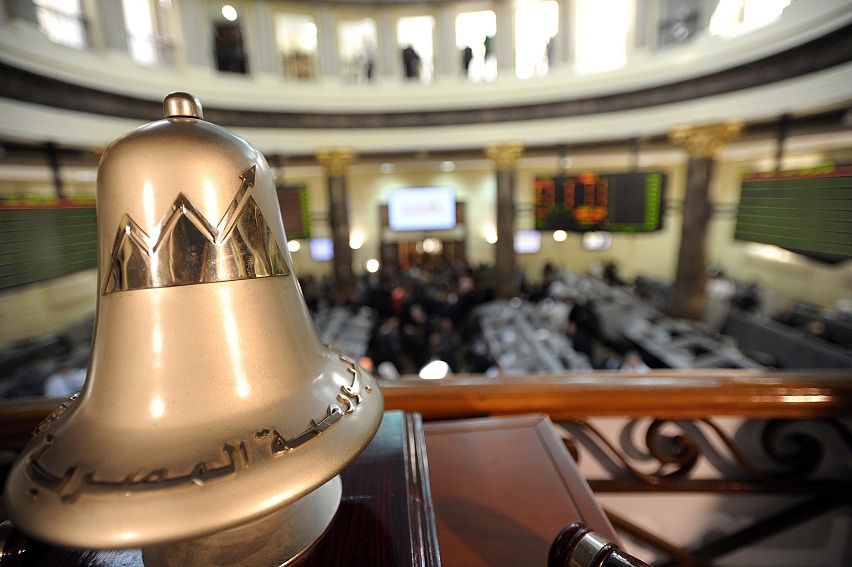The Commercial International Bank (CIB) held a panel discussion titled “The Role of Financial Institutions in Sectoral Decarbonisation with a Focus on Green Built Environment and Energy” at COP27 on Tuesday.
Discussions centered around action needed from financial institutions to help accelerate the decarbonization of the economy, in line with the Ministry of Planning and Economic Development’s sustainable development strategy ‘Egypt Vision 2030’.
Hala El-Said, Minister of Planning and Economic Development chaired the session, shedding light on the role of the private sector in achieving the country’s development goals, particularly those related to carbon emission reduction.
El-Said also highlighted the government is exerting efforts in greening its national investment plan and projects, stating that in fiscal year 2021/2022, 30% of the projects of the national investment plan were green projects, aiming to increase their share to 50% by 2024/2025.
El-Said also announced plans by the Ministry of Planning and Economic Development to launch their “Friends of Greening National Investment Plans in Africa and Developing Countries” initiative on the Solutions Day in COP27.
In her speech, El-Said also stated that Egypt is the first country in the Middle East to issue “green bonds” worth $750m, to mobilize resources for green projects, highlighting CIB also launched a green bond.
Speakers included CIB Chief Operating Officer Mohamed Sultan, CIB Chief Sustainability Officer Dalia Abdelkader, IFC Global Director for Climate Business Vivek Pathak, SODIC Managing Director Magued Sherif, and Glasgow Financial Alliance for Net-Zero (GFANZ) Executive Director Tony Rooke. The panel was moderated by CIB Head of Sustainability Culture and Stakeholders Relations Safa El Assy.
Highlighting CIB’s continuous commitments in this space, Sultan said: “When we began our journey for sustainability at CIB, our goal was to not only integrate ESG principles within our internal operations, but to also empower our staff, society, and clients to realize the real value of sustainable growth. To that end, we will continue to leverage our platform, network, and resources to empower our stakeholders as we work together towards low carbon transitions.”
Building on CIB’s experiences in decarbonisation, Abdelkader said: “CIB is among pioneers in the banking sector for measuring and issuing a report on its carbon footprint in 2017. We then went on to spearhead globally benchmarked ecological footprint reporting in 2020, a milestone that speaks to our efforts in developing a leading system that defines the role of banking institutions that assume responsibility for carbon, land, and water impacts.”
AbdelKader added: “CIB launched the ‘Sustaining Sectors’ programme for corporate, a multi-purpose platform that aims to provide support, including capacity building, to a large segment of companies across different sectors as they transition to a low carbon economy. The program has conducted tailored workshops for the Bank’s clients in the textiles, green buildings, and food industries sectors, and will further its expansion over the coming year.”
The panel discussion also addressed the key role of climate finance instruments and their accessibility to better meet the evolving needs of transitioning sectors. In light of this, Pathak said: “Driving climate finance into emerging economies hinges on the ability of national financial institutions to deploy all the green capital they can. We need local savings channeled into facilities that can help decarbonize all sectors, from energy to transport and adaptation. CIB is playing a pioneering role in this regard, having issued Egypt’s first privately issued green bond. At IFC, we were very pleased to collaborate with the bank in this effort.”
Sherif presented a case study for decarbonisation in Egypt’s real estate sector, further emphasizing the importance of aiding the sectoral transition. “We are honored and excited to be participating in COP27 this year and to be part of the climate action dialogue. At SODIC, we have started taking serious steps towards a sustainability-led growth strategy. We have just undergone a companywide ESG assessment, measuring our carbon footprint to be able to set meaningful carbon reduction targets over the coming years. As part of our ESG strategy, we are prioritizing green building design, as well as retrofitting our existing operational projects. As a real estate developer, we are fully committed to developing sustainable communities that will continue to thrive well into the future, creating long-term economic, social, and environmental value.”
Reiterating the role of decarbonisation pathways in supporting the economy, Rooke stated: “Decarbonization pathways are essential tools to help financial institutions and companies assess how and where capital should flow into building a low-carbon, resilient economy. They provide a link between desired emissions reductions outcomes and the decarbonisation levels required.”
Among the panel’s fundamental discussions was the need for financial institutions to decarbonise their own balance sheets while helping other real economy businesses down the same path. The complexity of decarbonisation and the need for multi-stakeholder engagement and collaboration lead to discussions on increasing mandates on financial institutions in Africa and expanding their involvement in the process. Moreover, and considering their notable influence, commercial banks can lead this transformation and facilitate decarbonisation of corporate and, eventually, the real economy overall. The panel also presented real case studies and experiences in green built environment and energy solutions using interactive dialogue between banks, corporate, and subject matter experts.
CIB is leveraging its longstanding expertise in sustainability and its membership in the Capital Mobilization workstream under the Glasgow Financial Alliance for Net-Zero (GFANZ) to advance the region’s decarbonisation goals and extend its support to stakeholders to achieve sustainable growth.




